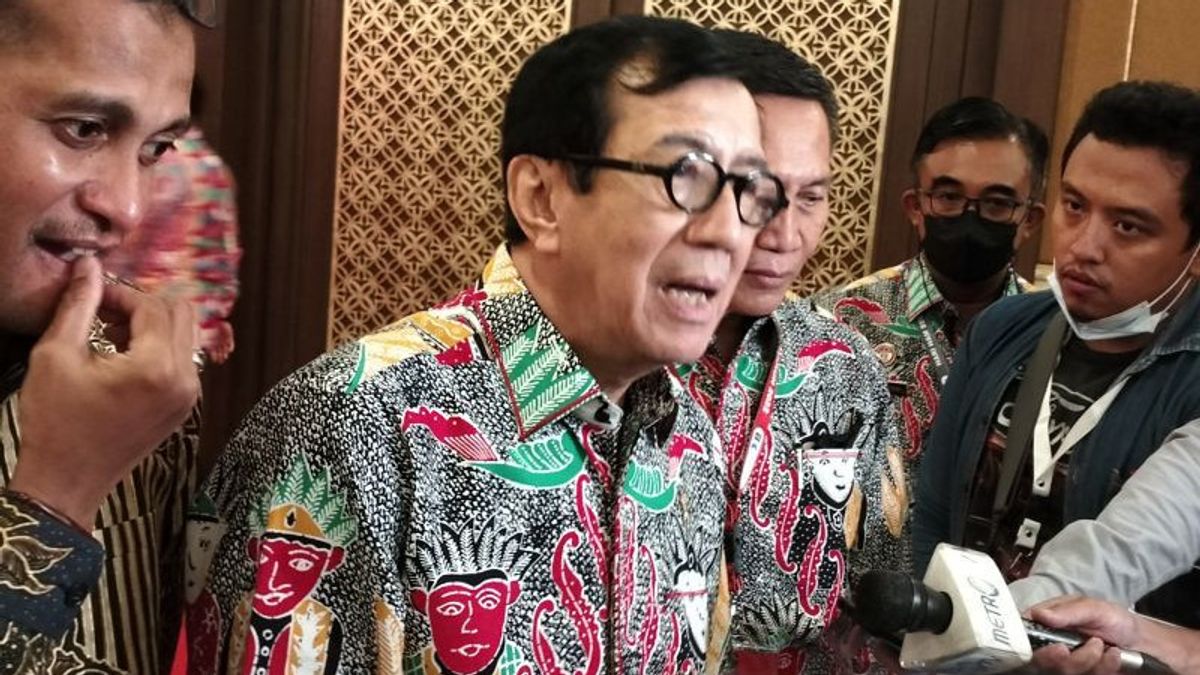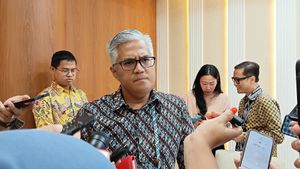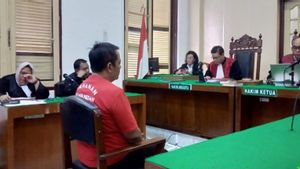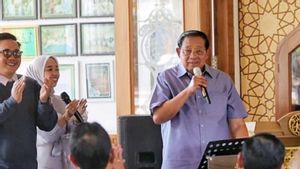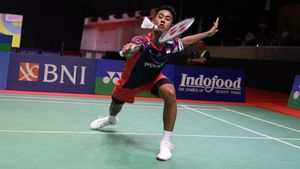JAKARTA - Minister of Law and Human Rights Yasonna Hamonangan Laoly said that the settlement of cases of alleged past gross human rights violations was not only resolved through a pro-justitia mechanism, but also non-judicial.
"So our approach is not solely pro-justitia, there are non-judicials," said Yasonna at the peak of World Human Rights Day commemoration activities in Jakarta, quoted from Antara, Monday, December 12.
The Minister of Law and Human Rights said the Indonesian government already has benchmarking or benchmarking/guidelines in resolving various alleged past gross human rights violations. For example, for the Talang Sari case, tragedy in Aceh and so on.
"So, there are several approaches that we take," said Yasonna.
The approach to resolving cases of alleged past gross human rights violations involves many parties. These include ministries and institutions, central and local governments.
This was conveyed by Yasonna Laoly when responding to questions from the media crew regarding the decision of the Makassar District Court judges who acquitted the sole defendant in the Paniai case, namely the Infantry Major (Purnawirawan) Isak Sattu.
Based on the decision of the Makassar District Court, the Minister of Law and Human Rights emphasized that he submitted the process to the more authorized party, one of which was the Attorney General's Office (AGO).
To reporters, Yasonna admitted that he did not know whether the Attorney General's Office filed an appeal or not against the acquittal of the Makassar District Court judges.
"I don't know, the prosecutor's appeal or something. We don't know yet," he said.
The English, Chinese, Japanese, Arabic, and French versions are automatically generated by the AI. So there may still be inaccuracies in translating, please always see Indonesian as our main language. (system supported by DigitalSiber.id)
Tags les plus populaires
#Prabowo Subianto #Palestine #Hasto Kristiyanto #free nutritious food #tangerang sea fencePopulaire
20 Januari 2025, 06:25
